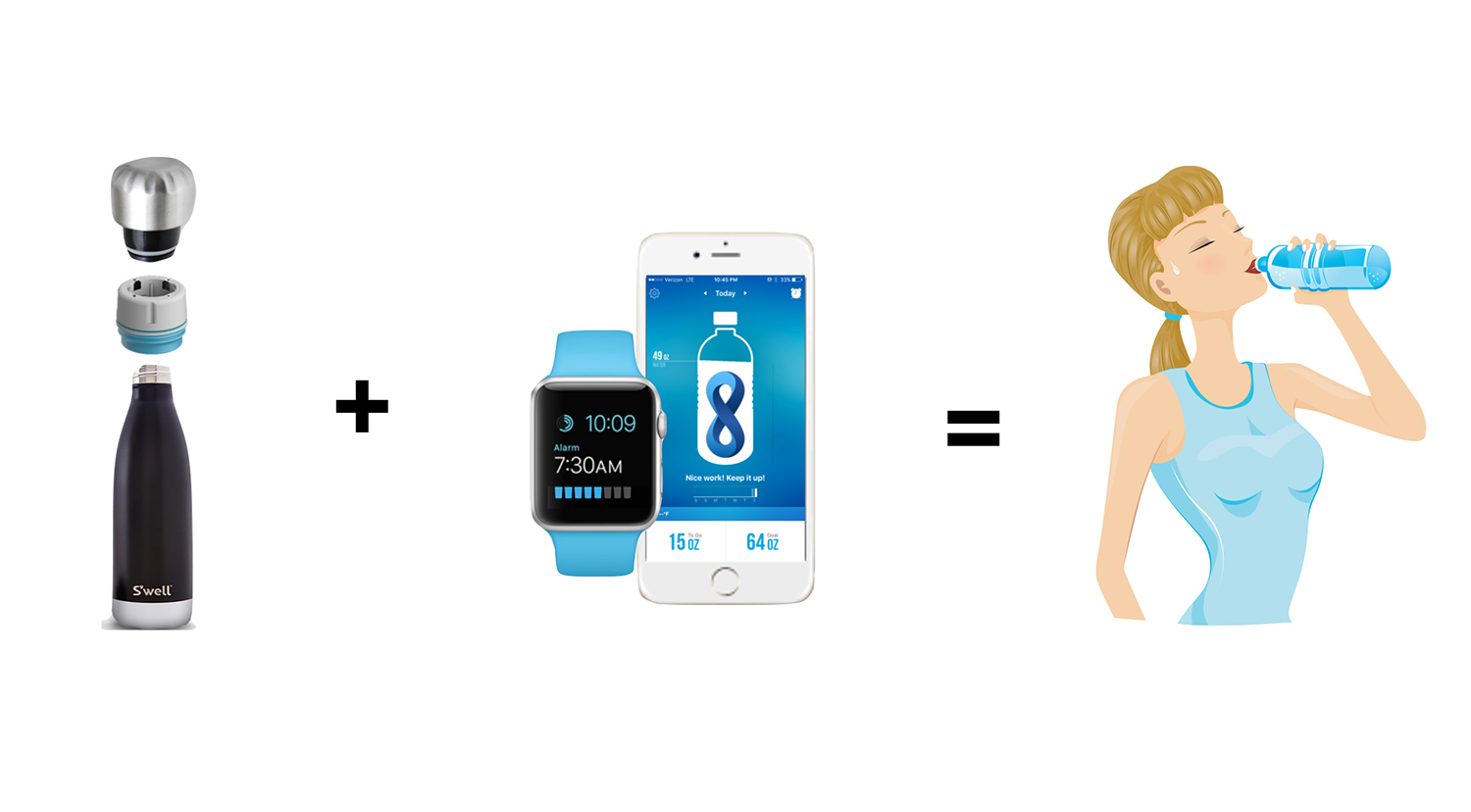We are focused on excellence. And throughout all the Lab’s activities, the goal is train managers to push the envelope and make a difference, just as the Drucker School’s founder, Peter F. Drucker, did.
Directed Research Projects, Internships
Directed research projects are an opportunity for our students to step up their game–to drill deeper, go further, be bold but practical. Students and projects benefit from one-on-one faculty support and advice.
Example: iHYRD8
A good example of this is iHYDR8, a smart bottle concept that won second place at Drucker’s 2016 Kravis Concept Plan Competition, sponsored by Henry Kravis, co-founder of the private equity firm KKR and an alumnus of Claremont McKenna College.
Many people in California walk around with water bottles, some attached to bags, some carried in hand. People are concerned about staying properly hydrated. But are they? And how do they know when to take a sip and how much water to drink?
Also, most plastic bottles are not recycled but instead thrown away, adding to the degradation of the environment.
So Jill Mintzer, a Drucker School MBA student, envisioned a smart bottle solution to ensure proper hydration and to encourage the use of reusable bottles. Mintzer’s system, iHYDR8, adds a smart adapter to water bottles and uses a mobile app to track the amount of water consumed, allowing users to manage and achieve their hydration goals.

Frontier Projects and Business Experiments
We are working closely with businesses on AI-enabled customization and personalization for smart products as well as monetization strategies using new sensors, and our advantage with customer science and research experiments.
The Software Shift: Smart Products and IoT
Businesses have always used new technology to innovate and automate: From James Watt’s steam engine in 1781 to Henry Ford’s moving assembly line in 1913. Lately, automation has shifted from mechanical systems to software, from SAP’s enterprise resource planning (ERP) in 1973 to Salesforce’s customer relationship management (CRM) in 1999. Today, software has become so smart, it can create its own software. For example, machine learning can create recommendation engines so that a product can recommend and sell itself. Our market pilots with early adopters suggest re-architecting of products and business processes from the ground up around these AI capabilities. Nobel-prize winning work on AI (Herb Simon’s 1969 The Science of the Artificial) and complex adaptive system design in particular (John Holland’s 1995 How Adaptation Builds Complexity) have proven helpful here. We summarized our feedback from early adopters in a short column on: “Technology Personified.”
The Digital Service Shift
At a macro level, gross domestic products (GDPs) worldwide have been shifting away from products to services for decades. Today, at a company level, the shift towards smart products and IoT is creating service business opportunities. Consider the auto industry: Yesterday, smartphone technology enabled new mobility offerings, such as Uber’s ride-hailing service. Today, cloud-based AI allows for autonomous vehicles and robotaxi services, such as Google’s Waymo. Our 2017 proposal for Volkswagen’s Electrify Amercia envisioned taking new technology even further, testing entirely new mobility paradigms and business models, such as “E-Mobility as a Utility.” More information on the EV proposal is available online.